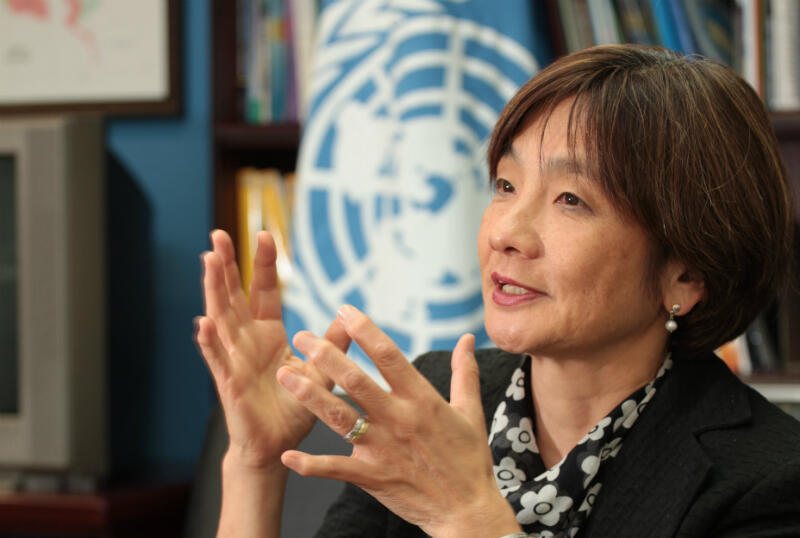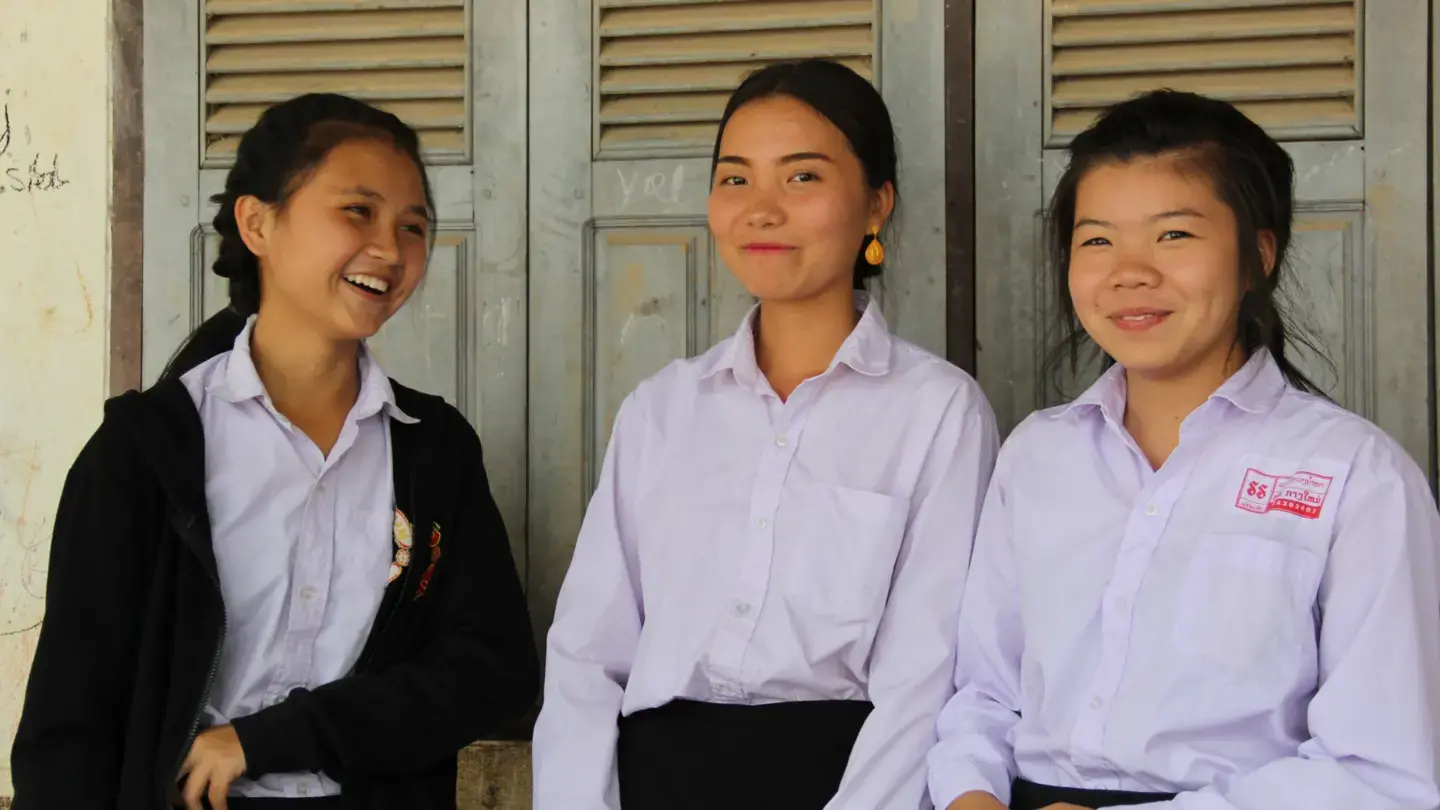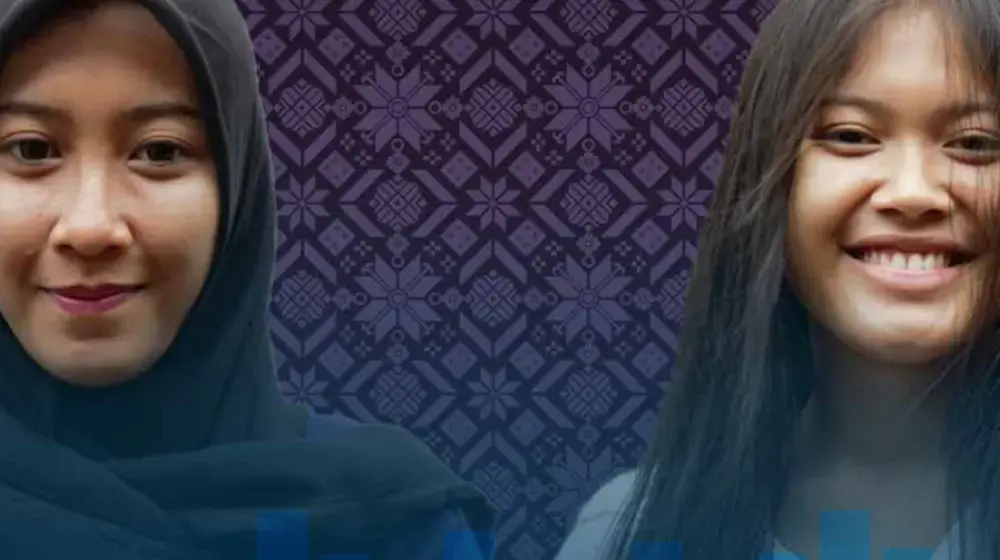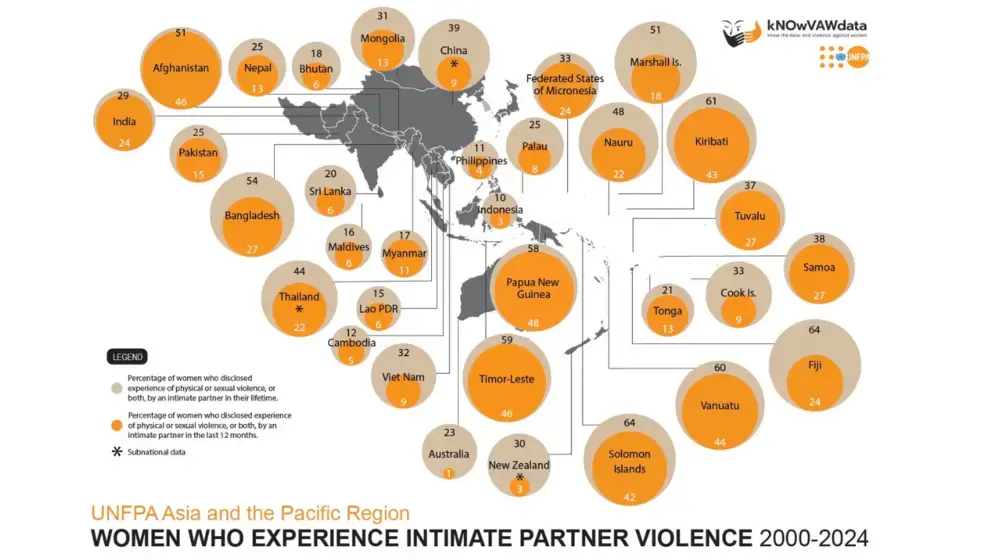
Yoriko Yasukawa, a United Nations veteran, served as Regional Director for the United Nations Population Fund (UNFPA) Asia-Pacific from 2015 to 2017. In this in-depth interview she reflects on a range of issues, from UNFPA's unique mandate to the UN's wider role and relevance in the world of today.
UNFPA was an organization pretty much "new" to you when you assumed the Regional Director's position for Asia-Pacific in August 2015. What were your impressions of the organization before you arrived, and how did they evolve over your two-year tenure?
The predominant impression I had was of an organization of people passionately committed to their cause, especially sexual and reproductive health and rights. I remember as UN Resident Coordinator in Bolivia and in Costa Rica always being reminded by the UNFPA Representative to include those issues in UN Country Team documents and initiatives.
In Bolivia I had a chance to work closely with UNFPA in an interagency project on indigenous peoples – a key issue for a country where the majority of the population is indigenous and where the government, led by the first indigenous President, was working very actively to advance the fulfillment of indigenous rights. UNFPA played a crucial role both in resource mobilization for the project as well as in attending to the needs of the most vulnerable and marginalized indigenous communities.
In Bolivia I also got a glimpse of UNFPA’s work on censuses as the country was gearing up to prepare for one, though I left before it was actually carried out.
In Costa Rica, where I was UN Resident Coordinator before I came to the UNFPA Asia-Pacific Regional Office, I had the chance to see very important work done by UNFPA with the Parliament in promoting gender equality. So I had some sense of the interesting range of work being done by the agency as well as the high caliber of its staff.
When I joined, those impressions were confirmed and reinforced, but what most struck me in the beginning was how warm and friendly and kind all the colleagues were. And that is important because you want the staff in any organization to be not only capable professionals but also good and decent human beings – especially in an organization like UNFPA that is working to make life better for people, and particularly those that are the most vulnerable and in need of help.
What strikes you the most about UNFPA's mandate/issues? How does the organization's advocacy platform compare with those of the other agencies you've worked at, primarily UNDP and UNICEF?
Perhaps what is most striking is that UNFPA has a well-defined mandate – those four areas specified in the strategic plan: sexual and reproductive health and reproductive rights, gender equality, youth empowerment and population and development, especially the generation, analysis and use of population data to inform development policy.
And at the same time it is involved in a very broad range of issues and activities. On the one hand you have sexual and reproductive health and rights where you are working on very personal and intimate issues – sex, love and child bearing. On the other hand, you work on censuses that are titanic undertakings that involve counting everyone in a country and asking them a very wide gamut of questions that have to do with a variety of development issues, then processing and analyzing that huge volume of data is an enormous undertaking.
What UNFPA does at both ends of that broad spectrum that goes from the private and intimate to the very macro public policy sphere is equally crucial to the UN’s fundamental mission, which I think is peace-building – peace-building seen as a process of building communities, at the local, national and international level, that include everyone and where everyone counts equally, where everyone enjoys the same right to a life of dignity.
I have often said that the work of the UN is at heart about love, because to build community you need love. Love, not only in the sense of that spontaneous affection toward those whom we are fond of, but as a reasoned and conscious effort at empathy toward others, including those we don’t know, those we disagree with, those who may even have done us terrible harm. Love as a quest to build fair and democratic public policies, institutions, societies – and an international community -- based on that empathy, that include everyone, ‘leaving no one behind.’
To accomplish that objective, on the one hand, you literally need to count everyone and find out what everyone’s needs and capacities are. On the other hand, ensuring freedom, choice, respect and safety for individual human beings in that most intimate sphere of our lives that has to do with sharing our bodies and our hearts with another is also essential to building more inclusive and democratic and caring societies.
During a visit to Bangladesh last year, I was taken to an obstetric fistula clinic supported by UNFPA and met a woman who had been successfully treated there after living with the condition for 26 years. She had been married off at 12 and soon after had a still birth and was left with fistula. Her husband abandoned her and she ended up going back to her parents and lived in pain and humiliation for those 26 years until she was finally treated at that clinic.
Ensuring that women and girls like her have the freedom to choose whether and when and with whom to have sex, whether and when and whom to marry and how many children to have, and also that they have access to adequate sexual and reproductive health care by trained professionals – that has to be an essential part of building a more just and free society and nation.
On advocacy, I think it is a central part of what both UNFPA and the UN System as a whole are meant to be doing, which is to help countries – both governments and the citizenry – to do the right thing.
In the case of UNFPA this would mean helping governments to formulate and apply policies directed at ensuring universal access to sexual and reproductive health services, and guaranteeing choice and freedom for all people, especially women, in their sexual and reproductive life, gender equality, participation of young people in decisions that affect their lives, and generation and use of population data for inclusive and sustainable development. It also means helping the citizenry of those countries to hold the state accountable for discharging that duty.
So advocacy – the process of articulating and conveying the right messages both publicly and face-to-face with the relevant actors, offering technical and political support and sometimes pressure, mobilizing people and organizations and building partnerships and collective action around that cause – is really our main job.

Yasukawa at a march against homophobia in San Jose, Costa Rica, when she served as UNRC there. The caption: "Homosexuality is not an illness. Homophobia is."
As I have said on many occasions, with the amount of resources that UNFPA has in any given country, which is a small fraction of the budgets of even the poorest countries, the services that we can fund directly will always only cover a limited population and if they depend on UNFPA funds they won’t be sustainable. So if you want to achieve durable change, you need to get governments to invest their own budgets and also build the collective political will to sustain and gradually increase that investment. That’s a key part of the advocacy UNFPA needs to do.
Ultimately though, I think our goal is, as a friend of mine once said, to turn the objectives we are working for into ‘part of the national identity’ of countries. That is, to get people to feel that striving to ensure that all women have universal access to sexual and reproductive health, for example, is an essential part of what makes their society and their nation worthy. Going back to the Bangladesh example, we would want everyone in the country to feel that a story like the one of the woman I met at the fistula clinic is unconscionable, that it is not worthy of the ideals the Bangladeshi society and nation hold dear to allow something like that to happen.
In terms of how UNFPA’s platform compares with those of UNDP and UNICEF, there are of course differences since we have different mandates. But I think we are all ultimately working for the realization of the same vision put forward in the United Nations Charter and in the Universal Declaration of Human Rights. And now we have the Sustainable Development Goals (SDGs) which give us a more specific framework under which we should all be seeking to work together better.
It’s true that UNFPA’s mandate is a very sensitive one, especially where it deals specifically with sex, which people tend to want to avoid talking about in most cultures, and particularly in traditional and conservative cultures which still predominate in the countries where we work. Sexual and reproductive rights have also become a kind of lightening rod for the wrath of conservative and extremist movements in all parts of the world. And there are very well-organized and funded groups that are working to restrict or roll back those rights. So in that sense, you could say UNFPA’s advocacy platform is a particularly difficult one.
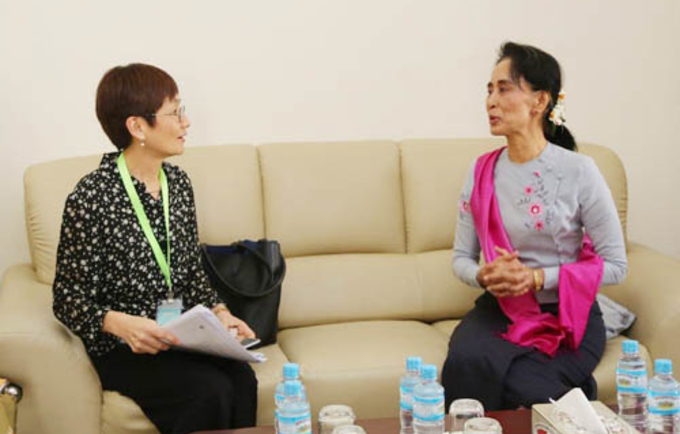
Yasukawa with Myanmar leader Aung San Suu Kyi, 2016
But having worked with both UNICEF and UNDP, I can also say that if you seriously pursue the mandates of those two organizations, they can be just as sensitive and controversial, because whether we are talking about children’s rights or democratic governance or equity or environmental sustainability, if you follow those mandates to their ultimate consequences, sooner or later you are going to threaten existing power relations and vested interests, both economic and political. I know that from experience.
A challenge we all share is: how to be effective and consequential in our advocacy while at the same time minimizing conflict and bringing together people and groups with different beliefs and interests; also convincing those whose short term interests might be jeopardized that they will gain in the long term by building more inclusive and egalitarian societies that are also environmentally sustainable. In fact, this isn’t just a challenge for the UN development organizations – I think it’s the central challenge for humanity, particularly in the increasingly polarized climate that we live in these days.
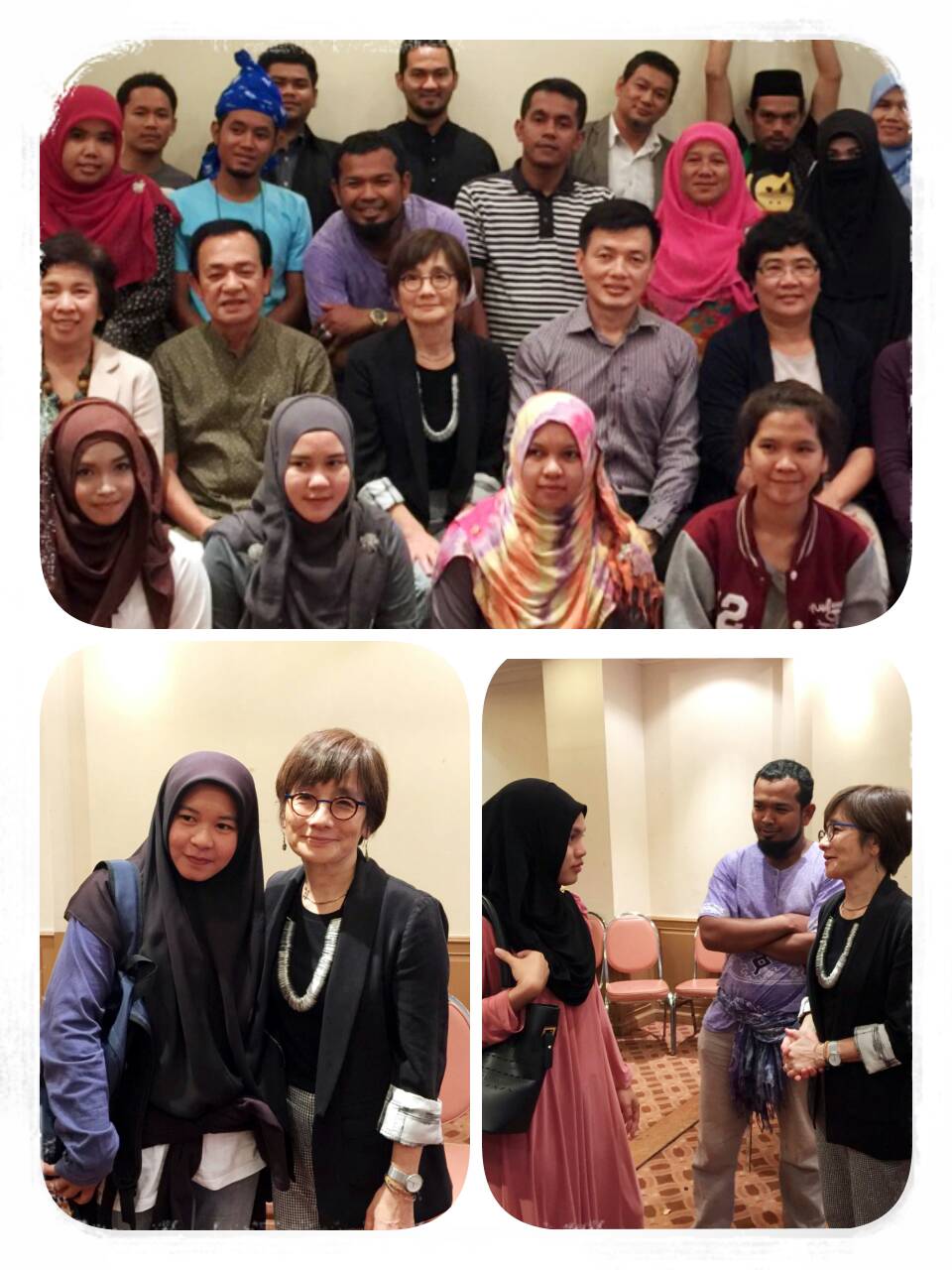
Yasukawa with young people seeking to bring about peace and reconciliation in conflict-scarred southern Thailand, 2016
These are exceptionally challenging times globally for the UN as a whole, and UNFPA in particular given the defunding by the current US government and wider opposition to our mandate in so many quarters. What would be your advice or "way forward" in the face of these challenges, at a time when our issues are more urgent than ever?
I think UNFPA needs to become an even stronger champion for its mandate, and be more proactive in moving it forward and counteracting attempts to restrict sexual and reproductive rights, women’s and girls’ rights more broadly, and the empowerment of young people.
I think that also involves expanding our partnerships and alliances to not only more but also more diverse organizations and individuals to build and strengthen social and political movements around these objectives.
At the same time, I think UNFPA needs to get better at dialogue with those that do not agree with its cause. UN agencies in general have a tendency to avoid talking to people they think are hostile to their mandates and often end up preaching to the choir.
But when you are working for social and political change we need to talk to everyone. We need to try to bring those who disagree with us into the process of change we are trying to promote.
We won’t necessarily change people’s minds, but I think in most cases it is possible to at least establish a dialogue and relationships of trust, and that can in turn allow you to minimize conflict and help build policies and programmes that enjoy the greatest level of consensus – or the least opposition – possible, and hence are more politically and socially sustainable.
More broadly, the UN is often attacked by its critics as being "irrelevant" or incapable of fulfilling its responsibilities. What is your take on that as someone who has spent decades with the UN?
I do believe that the UN does a lot of good – otherwise I would not have stayed so long. On the other hand, I also understand that people who see the UN as an entity that is supposed to prevent war and build peace, look at all the terrible conflicts and brutality and suffering in the world and say, ‘What the hell is the UN good for?’
Yet, on the whole and as a trend, the number of people killed in warfare has declined since World War II, and since the Cold War the number of armed conflicts has also been falling continuously.
It is hard to attribute that directly to the work of the UN, but there are studies that provide evidence that the UN does contribute to reducing conflict. A recent study done by Duke University and Ohio State University finds that the UN as a forum for nations to work together increases the chance of conflicts being resolved peacefully.
A report by the Secretary-General on preventive diplomacy provides a lot of examples of how the UN helps to avoid violent conflict through various means. As UN Resident Coordinator and also as UNICEF Representative, I have engaged in country-level efforts in conflict prevention and resolution and I think that we did offer useful and important support that did make a difference.
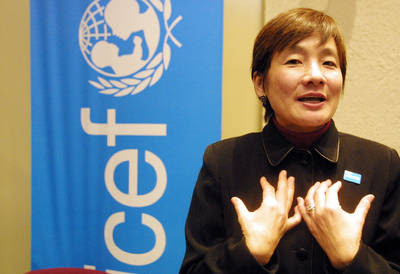
Again, it is hard to attribute specific results exclusively to the work of the UN, especially when you cannot know what the so-called ‘counterfactual’ is, but I believe that in the very least, we often had a moderating effect of keeping conflicts from getting worse.
And in the best of cases, we heard directly from the parties in conflict that we did make a difference. One very nice comment I heard about our role in facilitating a dialogue in Bolivia was, ‘You reminded us of the higher good,’ that is, peaceful resolution of conflict as a common good, more important than the political interests of a particular party.
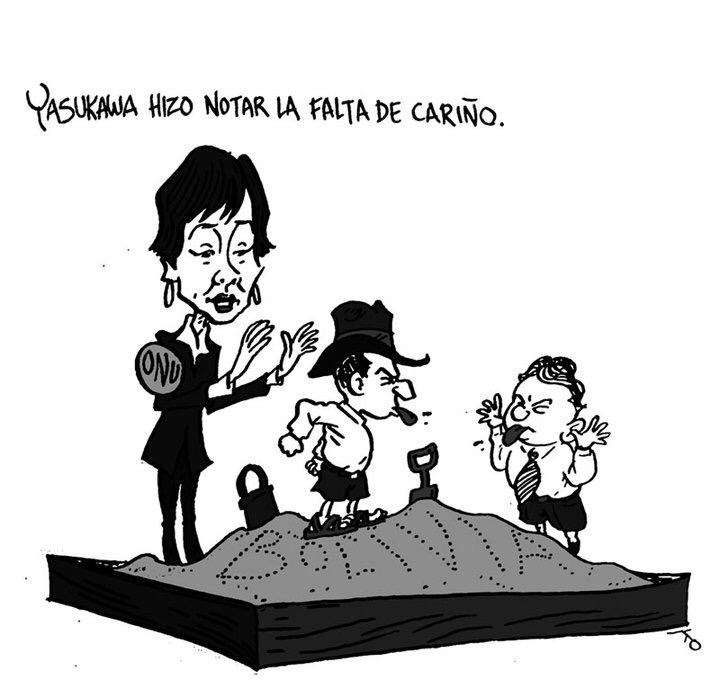
A cartoon in the Bolivian newspaper La Razon describes Yasukawa's efforts at peace-building when she was the UN Resident Coordinator, with the caption: Yasukawa points out the shortage of love'
On the development front also, there have been dramatic advances, for example, drastic reductions in poverty around the world, enormous increases in the number of children going to school, and huge reductions in child deaths and maternal deaths.
Here again, it’s hard to say how much of this can be attributed only to the work of the UN, but I think there is a lot of evidence that our work has made a difference, including independent evaluations of UN country programmes.
Sometimes we fund and organize the delivery of services directly, especially in humanitarian crises, and sometimes as I mentioned earlier, we help governments and societies to do things differently and better, through advocacy, technical support and other means.
Another important area of work, and one of the three pillars of the UN together with peace and security and development, is the defense and promotion of human rights. I think that the work done by different parts of the UN – the Human Rights Council, the High Commissioner of Human Rights, the Secretary General himself, the UN Country Teams, and specifically UNFPA in ensuring reproductive rights and women’s rights more broadly – does make a difference.
I do think we need to be more proactive and better at what we do in this sphere, especially at the country level, but I also think the world has come a long way in advancing human rights.
Despite the questions raised in some quarters of human rights as a ‘Western’ concept, I think there is a global consensus as never before that human rights are a universally shared system of values and principles. And the countries have built and agreed on a series of international legal instruments to protect these rights.
The processes of peer reviews of countries, especially the Universal Periodic Review, are really important, particularly because they are universal, and not processes imposed by rich countries only on the poor ones.
I do think that the UN’s role in building these universally shared values and principles are of crucial importance. The same goes for facilitating agreements and commitments around common development goals and targets such as the SDGs and the ICPD Programme of Action. I think the global pressure and momentum created around the MDGs did help to accelerate progress. It’s work that can only be done by an organization in which all the countries in the world participate.
It’s also important that the UN has a physical presence in so many countries to help ensure that these global commitments are turned into concrete results in the betterment of people’s lives – you cannot do that in the same way just working from New York or Geneva.
I’ve often felt that one of the more useful roles we play is that of close and constant accompaniment of national institutions and organizations, working side by side, even in the most difficult moments, continually encouraging our partners to do the good and right thing, to not give up, saying, ‘Yes, you can do it!’
A great thing about working at the country level is the possibility of bringing together those three pillars in a way that each reinforces the other – supporting inclusive and equitable development policies that seek to ensure the right of all people to a decent life, which in turn build social cohesion, solidarity and peace, which then offers a better environment for development, and so on – in a specific national context.
One very important role of the UN is being a moral voice, a voice with the authority that comes from representing all the countries of the world, and a voice for those that have no voice – like the woman at the fistula clinic I mentioned earlier. We need to let the country and the world know that women and girls like her exist, that it’s an outrage that they have to go through this kind of suffering, and that governments and societies have an obligation to correct such injustices. I think we need to be much better and much more active in being that voice.

Yasukawa at the 2016 launch of kNOwVAWdata, UNFPA's Australia-funded multi-year initiative to measure the prevalence of violence agianst women in the region
One thing that people seem to get wrong about this particular role is to think, ‘Oh, but we can’t criticize the government.’ And it’s not about that. It’s about shining a light on the gaps, where there are wrongs that need to be redressed, where there are things that should get done that aren’t being done, and you can do that in a respectful and constructive way that also recognizes the good things that are being done, and of course providing support to help the government to fulfill its obligation.
We can also be more efficient and effective at what we do, definitely, and I think that it is absolutely valid that critics of the UN – including those that work in the UN System -- continually point this out. I think our bureaucratic processes are very complicated and time-consuming and that there is a lot more than can be done to streamline them. There are also costly and wasteful practices that we can get rid of or reduce.
At the same time. I do think we need to be careful not to throw the baby out with the bath water, so to speak. In seeking efficiency, we need to always keep our eyes on the end purpose which is to make a difference in the lives of people, especially the most excluded and marginalized. The objective should be to do that better. Efficiency or cost-cutting shouldn’t be an end in itself.
Finally, it’s good to remember that the UN is ultimately what its member states make it. And in that sense, I think it is important for the citizens of those member states to also take responsibility in demanding that their governments do everything possible to ensure that the UN does the good and right thing and does it well.
Your own personal journey has been an unusual one, in your work with the UN and beyond. Any thoughts on what you'd like to accomplish going forward as you embark on new adventures?
I feel enormously fortunate to have been able to work in various different parts of the UN System and in many different parts of the world. It has been such an eye-opening and mind-expanding experience.
There are three things that I am interested in doing. One is to dedicate some time to thinking about what I have learned over the 35 years I have worked in the UN System, and to try to articulate it in some structured form – for myself, and also for others that might find it useful.
Another is to continue to contribute in to the mission of the United Nations – peace-building, the defense and promotion of human rights and supporting inclusive and sustainable development -- in some way. It may not necessarily mean working in the UN System, but the important thing for me is to help make a difference, however modest, in people’s lives, especially the lives of those that are the most excluded and, in the language of the SDGs, ‘left behind.’
And the third thing is to continue to learn – and understand a little bit better this complicated, vast and amazing world we live in.
I’ve always liked the way Don Juan, the shaman in Carlos Castaneda’s books puts it: “For me there is only the traveling on paths that have heart, on any path that may have heart, and the only worthwhile challenge is to traverse its full length--and there I travel looking, looking breathlessly.”

